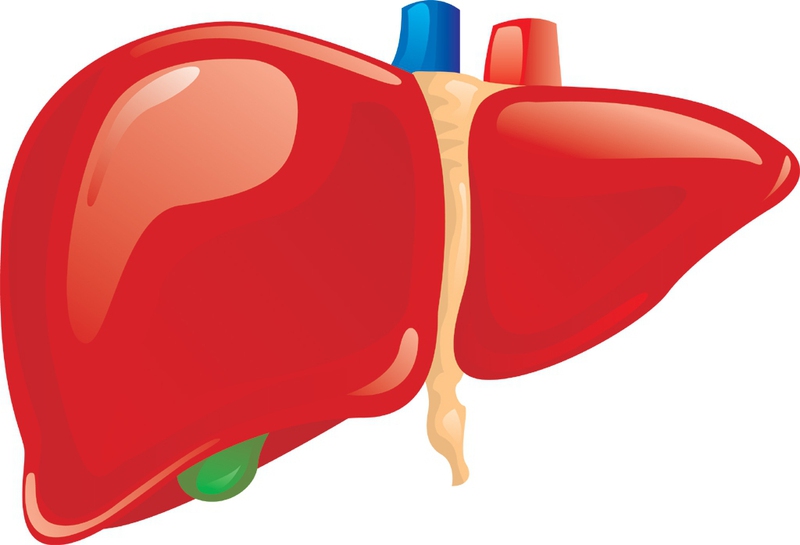Your liver produces bilirubin in the process of breaking down red blood cells. This is the substance that makes your stools brownish in color. It is found in the bile and is usually processed and excreted via the digestive system. We often hear about “high bilirubin levels” also referred to as Jaundice. This article discusses low bilirubin, which most doctors do not think is cause for concern. Some studies show that bilirubin may have more of an effect on the body than once thought. It may be an antioxidant and an anti-inflammatory that in normal ranges, may be helpful in preventing hardening of the arteries and inflammation in the body. Read on as we further discuss low bilirubin levels.

What Does Bilirubin Do?
Bilirubin comes from the liver and is formed as your body breaks down red blood cells that are no longer needed. The bilirubin is deposited into the bile and secreted into the digestive system. A small amount is absorbed and excreted in the urine.
If there is too much bilirubin, people suffer from jaundice (yellowing of the skin and eyes). This often happens to babies and people with liver disease. In this case, excess bilirubin can be toxic.
On the other hand, some studies show that low levels of bilirubin may contribute to lung cancer in smokers. Therefore, it is believe it may have some protective factors as an anti-oxidant. With this in mind, bilirubin in the normal ranges may actually protect the cells in the body from injury and death.
There are also studies that show bilirubin may have anti-inflammatory effects on the body. People with coronary artery disease and inflammation in the blood vessels have been shown to have low bilirubin.
There is also new research being done for the relationship between low bilirubin levels and End-Stage Kidney Disease. People going into the dialysis setting or who are already on dialysis have been shown to have low bilirubin. More research is needed in this area to find the exact cause of the relationship.
What Causes Low Bilirubin Levels?
In healthy people, low bilirubin causes include:
Excessive Vitamin C - Some natural health practitioners actually use vitamin C to lower bilirubin levels that are too high.
Caffeine – Caffeine contains xanthines that reduce bilirubin.
Phenobarbital – This seizure drug may lower bilirubin in some people that use it for seizures and isn’t usually a cause for concern. Doctors may even prescribe this drug in lower doses to help reduce high bilirubin levels.
Theophylline – This drug is used to treat lung disease. Theophylline like caffeine contains xanthines that reduce bilirubin levels.
It is not yet known if the diseases below are a cause of low bilirubin, but low bilirubin is seen in these disease processes:
Coronary Artery Disease
Seasonal Depression
Hemolytic Anemia
End-Stage Kidney Disease
Studies are ongoing to see how bilirubin regulates lipids (fats) and protects cells from damage.
Testing for Low Bilirubin
There are two forms of bilirubin in your bloodstream:
Unconjugated/Indirect Bilirubin – This form goes through the blood and into your liver. The liver changes it into conjugated bilirubin, which is soluble in water.
Conjugated/Direct Bilirubin – This is the bilirubin that is tested by blood measurements. The liver takes unconjugated/indirect bilirubin and combines it with sugars to make it water soluble and secretes it into the colon to be excreted.
Labs usually only test for conjugated bilirubin, but they can test total bilirubin and subtract to find the level of unconjugated bilirubin. Depending on which level is low or if both are low, it can be an indication of disease or medication toxicity.
According to Mayoclinic, normal lab ranges for Bilirubin is:
Total bilirubin – 0.1 to 1 mg/dL
Direct bilirubin – 0.0 to 0.3 mg/dL
How to Raise a Low Bilirubin Level
Medically speaking, at this time doctors may not do anything at all to raise your bilirubin level if it is low and you are healthy. This usually isn’t cause for concern and a high bilirubin can cause complications. These include jaundice (yellow skin and eyes), brain damage, and red blood cell damage.
If you have been found to have a low bilirubin level and you want to keep them in the normal range for the possible protective effects, there are certain things you can safely do at home to help them stabilize. These include:
Reduce caffeine intake
Keep vitamin C intake to the recommended daily allowance
Quit smoking to reduce your risk of lung cancer (low bilirubin may contribute)
Always talk to your doctor before attempting to raise a low bilirubin. There are certain disease processes that may benefit from low bilirubin, like preventing coronary artery disease. On the other hand, your doctor may want to watch a low bilirubin to monitor for signs of kidney failure. In normal healthy people, a low bilirubin level is usually not of any medical significance.

-

AlmaApr.27 00:37
I am really impressed with your writing skills and also with the layout on your weblog.
Is this a paid theme or did you customize it yourself?
Either way keep up the nice quality writing, it's rare to see a great
blog like this one nowadays.
fotbollstrøjer
View All Comments /Add Comment